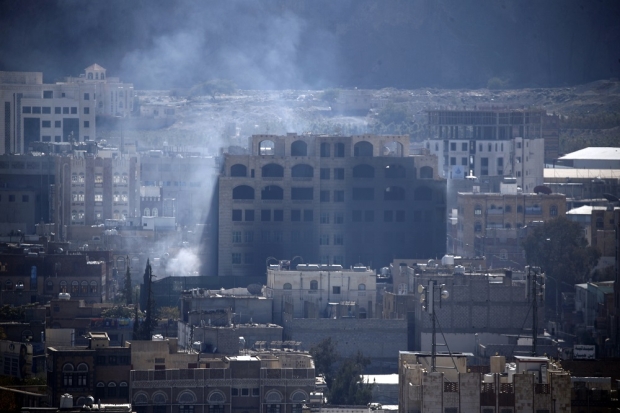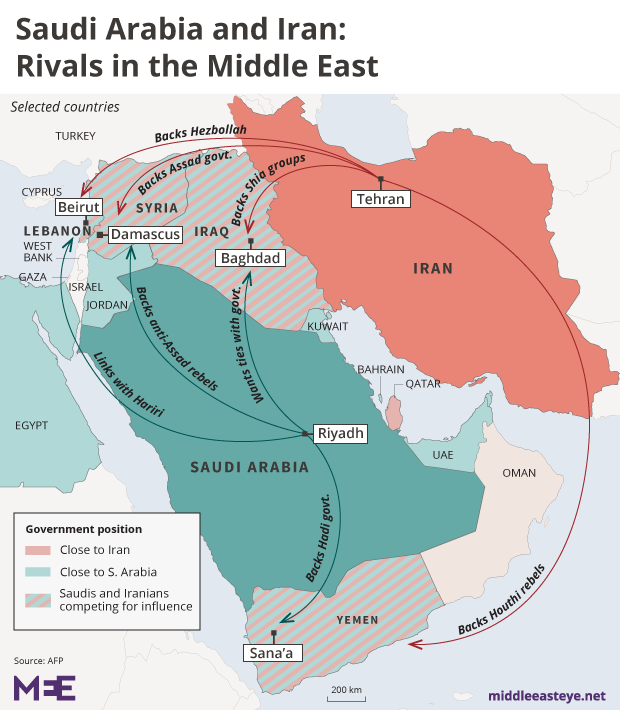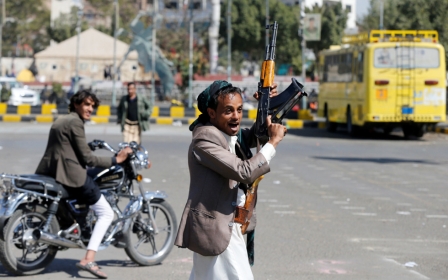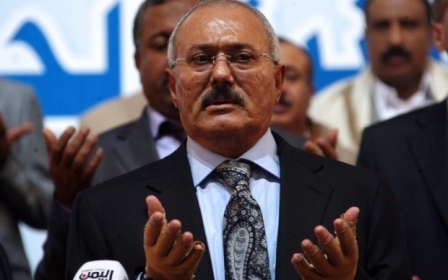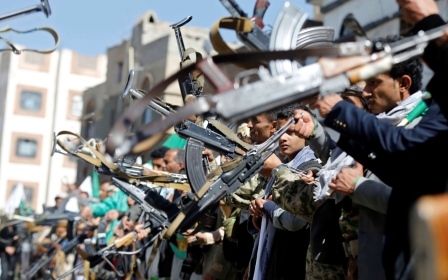Yemenis cower as air raids and fighting spread across Sanaa
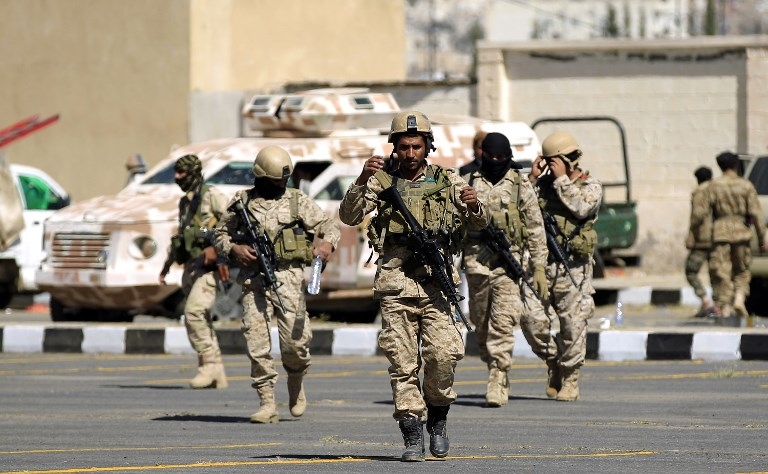
Air raids and fighting rocked Sanaa on Monday as clashes between the Houthis and supporters of ex-president Ali Abdullah Saleh spread across the Yemeni capital, amid reports the Saudi-backed Yemeni government-in-exile had ordered its loyalists to also enter the fray.
The air attacks appeared to hit targets near Sanaa international airport and the interior ministry, both under the control of the Iran-backed Houthis, according to residents and a source inside the airport.
A military coalition led by Saudi Arabia, Iran's regional arch-rival, is the only party in the Yemen war known to carry out air attacks over Sanaa.
Residents near the airport said multiple air raids had shaken their homes late Sunday night and in the early hours of Monday.
Around the city, civilians spoke of intense air strikes and overnight street fighting, which was described as one of the worst nights of violence in Yemen's war.
Many reported on social media said Sanaa residents were trapped in their homes with little food or water.
At least 125 people have died and 238 been wounded in the capital over the last five days, according to the International Committee of the Red Cross.
Despite the intense, ongoing fighting, a spokesman for the Houthis claimed to have struck several victories over Saleh's forces.
Houthi fighters on Monday blew up Saleh's house in the centre of the capital, according to witnesses.
On Twitter, Mohammed Abdel Salam said: "Yesterday evening, the security forces with the support of people managed to purge several military barricades.
"In God's will, hundreds surrendered, after they understood they were fighting a losing battle.
Hundreds surrendered, after they understood they were fighting a losing battle
- Mohammed Abdel Salam, Houthi spokesman
"The security forces will continue to purge the militias from the barricades and house that they use to attack and snipe whoever moves in the public street."
Salam said the "air force attacked our sites and the houses and public property around them".
"But, praise to God, these attacks did not stop our battles."
The movement had earlier posted pictures the interior of a "Saleh hideout", which was captured by its fighters.
Houthis media displays Saleh's favorite drinks collection in one of his hideouts raided today. pic.twitter.com/GcDyrJcK4j
— Ammar Aulaqi (@ammar82) December 3, 2017
Yemen's president in exile, Abd Rabbuh Hadi, meanwhile was reported as ordering his forces to advance on the capital and retake it from the Houthis.
"The president has ordered vice-president Ali Mohsen al-Ahmar, who is in Marib [east of Sanaa], to activate military units and advance toward the capital," a source told the AFP news agency.
Fighting erupted on Wednesday night between armed Saleh supporters and Houthi fighters, and has spread outside the capital.
Tribal sources in Saleh's hometown Sanhan, south of Sanaa, on Monday reported intense overnight fighting between the Houthi and Saleh loyalists.
Yemeni territory is split between the forces and government of Abd Rabbuh Hadi in the south, backed by Saudi Arabia and recognised by the international community, the northern Houthi rebels and forces loyal to strongman Saleh.
Houthis blow up 'Al Zurqaa' tribal sheikh's house in Hajja city today after he tried to join Saleh's call for revolt yesterday. #Yemen pic.twitter.com/jJ50CcGTtY
— Ammar Aulaqi (@ammar82) December 3, 2017
Since 2014, Sanaa has been ruled under an agreement between Saleh and the Houthis, who drove the Hadi government out of the capital, set up their own government and for two years together fought the Saudi-led coalition.
Saleh on Saturday announced he was open to talks with Saudi Arabia and its allies on condition they ended their crippling blockade on Yemen's ports and airports - dealing a serious blow to his already fragile alliance with rebel chief Abdul Malik al-Houthi.
The Saleh-Houthi split has sparked fears of a new front in the Yemen war, which has already claimed more than 8,750 lives since the Saudi-led coalition joined the war to support the Hadi government.
The conflict has pushed Yemen to the brink of mass starvation and triggered what the United Nations has called the world's worst humanitarian crisis.
Middle East Eye propose une couverture et une analyse indépendantes et incomparables du Moyen-Orient, de l’Afrique du Nord et d’autres régions du monde. Pour en savoir plus sur la reprise de ce contenu et les frais qui s’appliquent, veuillez remplir ce formulaire [en anglais]. Pour en savoir plus sur MEE, cliquez ici [en anglais].


